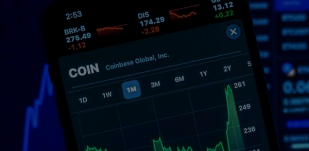What is a Forward Contract?
Exchange rates are constantly fluctuating in response to a stream of political and economic variables – from inflation and interest rates to political stability. If left unaccounted for, these market movements have the potential to drive up the cost of your business’s international payments and impact your bottom line.
Managing your exposure to this currency market risk doesn’t have to be a daunting prospect. With the right guidance from a trusted currency specialist, you can take control of your international payments – from in-depth technical analysis of market movements to the application of tools that mitigate the impact of exchange rate volatility on the cost of your trades, such as a forward contract.
So, what is a forward contract and how does it work?
What is a forward contract?
A forward contract allows you to fix the rate of exchange on a currency pair for a specified amount. You will then have an agreed date or amount of time to use the contract, usually between two weeks and 12 months in the future.
What are the different types of forward contracts?
Let’s take a look at some of the different types of forward contract that can be used to mitigate the impact of exchange rate fluctuations on your finances:
- Open window forwards: This type of forward allows you to use the contract incrementally within a specified time frame. For example, a client sells GBP and buys USD for the amount of $500K and has 12 months to use the funds. It is the most commonly used forward contract, mainly because of the flexibility it allows.
- Fixed date forwards: A fixed forward has a specified maturity date in the future where the total amount of the contract is settled on that date. This type of contract allows no flexibility. The exchange cannot be completed until the maturity date. For example, a client sells GBP and buys USD for the amount of $500K. They will then take delivery of the USD in total on the 30th December 2022.
How do forward contracts work?
A quick forward contract example:
- Steven owns an electronics firm in the UK but manufactures some component parts in the USA. He estimates his USD buying to be around $1 million per annum.
- He speaks to his Clear Currency account manager and they discuss the current market conditions and spot/forward rates. Together they determine a strategy that mitigates risk and allows flexibility to take advantage of favourable market moves, also protecting against any changes in his trading needs.
- Steven decides that a 50/50 approach suits his business needs and protects his profit margins while allowing room to trade on the spot market.
- A 12-month open window forward contract is agreed for $500K. The open window contract allows Steven to make payments at any time (drawdown from the contract) for any amount during the agreed 12-month period.
Pros and cons of a forward contract
Pros
- Forward contracts reduce your exposure to currency risk.
- By locking in rates now, you can plan ahead with certainty by knowing how much your future international payments will cost.
- This is particularly helpful for businesses that need to keep cash flow predictable and easy to manage.
- They’re quick and easy to execute with the help of your Clear Currency account manager.
Cons
- Currency fluctuates in both directions. Having fixed a forward rate means that you are committed to it, even if the exchange rate moves in your favour. If the rate changes, you may be locked into a lower rate than the market rate. To mitigate this, you could opt to use a forward contract for a portion of your total foreign exchange rather than all of it.
Make international payments with Clear Currency
Forward contracts allow you to take control of your international payments by shielding your finances from currency risk.
When you set up an account with us, you will be assigned a dedicated account manager who can help you execute a forward contract and understand the other tools at your disposal.
Sign up for an account today for quick, secure and cost-effective international currency transfers.
Related Articles
How to Mitigate Foreign Exchange Risk
Currency risk can have a significant effect on the efficiency and profitability of any international business. Each exchange rate movement affects how much you receive from sales and what you pay to suppliers.
Read more
Moving to Dubai from the UK: Checklist
You’re ready for a new life overseas and have decided you’re moving to Dubai. Now it’s time to consider the various costs involved, from your visa and accommodation, to health insurance, shipping your belongings and bringing your beloved pets along too.
Read more
Currency Outlook Quarter 1 2023
Clear Currency looks back at the performance of the US dollar, euro and sterling in Q4 2022, and assesses what might be in store for Q1 2023.
Read more


